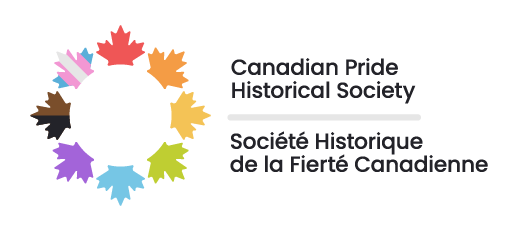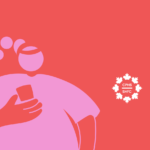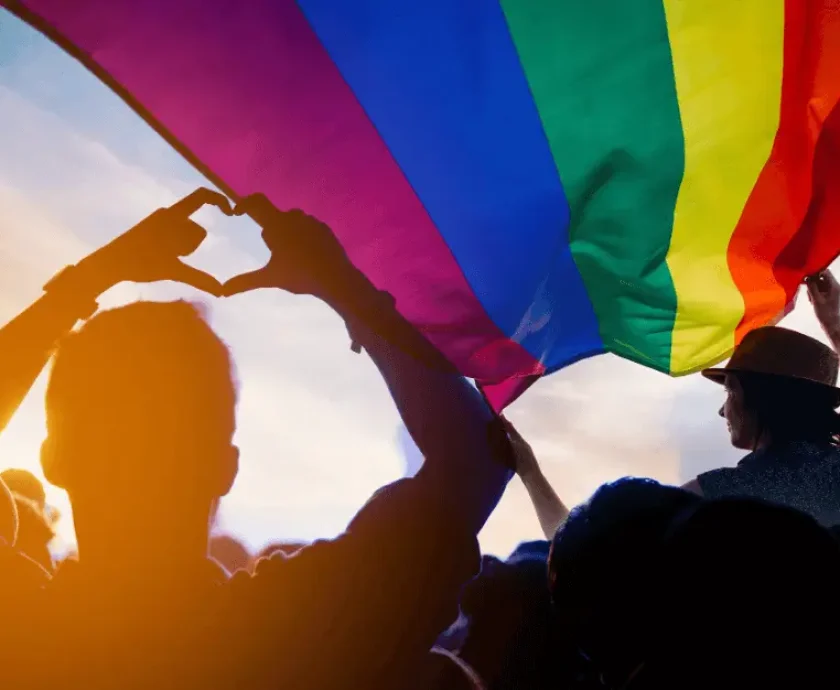May 22nd was Harvey Milk’s birthday, and every year we mark that occasion by taking time to remember him. Harvey Milk was a tireless fighter and advocate for 2SLGBTQIA+ rights in a time when Stonewall was still a fresh memory, and the results of his work still echo throughout the continuing fight for equal rights. Milk would have turned ninety-five this year were it not for his murder, and we must continue to honour his memory for all the years to come.
Born to a Jewish family in Woodmere, New York, in 1930, Milk by all accounts lived a very traditional life in his early years. He joined the US Navy during the Korean War, though he was forced to accept an ‘other than honourable’ discharge in 1955, rather than a court-martial due to his identity. He worked in insurance for a while, and was a rather staunch conservative, uncomfortable with being Gay. It was working as an associate director with Tom O’Horgan’s theatre company—and spending time with the cast of ‘flower children,’ who we’d call hippies today—that caused his viewpoint to dramatically shift.
Milk moved to San Francisco in the early 1970s and opened a camera shop with his partner (and future campaign manager) Scott Smith on Castro Street. San Francisco had attracted a sizeable 2SLGBTQIA+ population ever since the end of World War II, when many Gay men who had been expelled from the military elected to stay there instead of returning to their unaccepting hometowns. This burgeoning community attracted more Gay men in turn, and by 1969, the Kinsey Institute considered San Francisco to have the most 2SLGBTQIA+ people per capita of any major American city.
Castro Street was the centre of the 2SLGBTQIA+ community in San Francisco, and one cannot talk about Harvey Milk’s story without also talking about the Castro. Originally an ethnically mixed working-class neighbourhood, low prices caused by bigoted families fleeing the increased diversity of the area made it accessible to 2SLGBTQIA+ folks looking to settle down. San Francisco, however, was by no means any more tolerant than other cities. Oral sex was still illegal, and the current mayor, Alito, was aggressive in targeting public parks, where Gay men would meet up. In 1971, 2800 men were arrested for ‘public sex,’ a monumental difference from the 63 arrests made in New York. Milk would become more and more political over the years; friends remember having to prevent him from kicking the television during the broadcast of Attorney General John N. Mitchell’s continuous “I don’t recall” answers during the Watergate hearings. Eventually, Milk’s disdain for the way things were going reached its limit, and he decided on a campaign for city supervisor. Later, while reflecting on that decision, he would say, “I finally reached the point where I knew I had to become involved or shut up.”
His initial reception from those established in Gay politics was less than warm, but he quickly garnered support from some owners of Gay bars who weren’t pleased with what they saw as a ‘timid’ approach to police raids from those same established figures. He lost his first few elections, although his skill at politics quickly became evident. Despite his inexperience, he came in 10th out of 32 candidates during the 1973 municipal election, and it’s been said that if districts had been allowed to elect their supervisors, he would have won. Between his unsuccessful campaigns—including one for the California State Assembly—Milk worked to build coalitions at a smaller level as well. He was one of the founders of the Castro Village Association to support 2SLGBTQIA+ businesses and organized the Castro Street Fair in 1974 to draw more customers to the area, an event that is still an annual occasion to this day.
When the 1977 election came about, Milk had become an extremely well-known figure in not only the 2SLGBTQIA+ or the Castro communities, but across all of San Francisco—the San Francisco Chronicle even endorsed him for supervisor. He would end up winning by 30% in that election. Milk swept into City Hall on a massive wave of support, and he wasn’t the only newly elected official to be a newcomer. Sworn in alongside Milk were Carol Ruth Silver, a single mother; Gordon Lau, a Chinese American; and Ella Hill Hutch, an African American woman. Milk’s first act of his tenure was to sponsor a bill that would outlaw discrimination based on sexual orientation, which he called “the most stringent gay rights law in the country.” It was clear to all how enthusiastic and driven Milk was as a politician, and the causes he championed were extremely varied, from dealing with a dog excrement problem plaguing the city streets to calling for more affordable childcare and free public transport. Milk had begun to receive death threats after his run for the State Assembly, but he paid them no heed. “If a bullet should enter my brain,” he said, “let that bullet destroy every closet door.”
Tragically, we will never know just how much more progress Milk would have made. On November 27th, 1978, Milk and San Francisco mayor George Moscone were assassinated by former city supervisor Dan White, who was the only vote in opposition to Milk’s 2SLGBTQIA+ rights bill that had passed earlier that year despite his claim he supported ‘the rights of all people, including gays.” White had resigned from his position over a salary dispute but had soon after attempted to renege on his resignation. Moscone had denied that request at first, but eventually set up a meeting with White, where he was then killed. White killed Milk directly following his first murder, widely agreed to be an act of revenge over a perceived ‘betrayal.’
San Francisco’s 2SLGBTQIA+ community went into mourning. That same day, twenty-five to forty thousand people spontaneously formed a candlelit march from Castro Street to City Hall. All flags in California were flown at half-staff, and President Jimmy Carter expressed his condolences. When White was found not guilty by a jury that included no 2SLGBTQIA+ folks or ethnic minorities, riots engulfed the city for several hours.
It is impossible to detail all the ways Harvey Milk made an impact both during and after his life in a single blog post. One undeniable thing, however, is that his courage in being open with his identity in such a hostile time did, in the end, fulfil his wish and destroy the ‘closet doors’ of many. His nephew, Stuart Milk, who is also Gay, would eventually start the Harvey Milk Foundation, which works to advance equality all over the world—and was the driving force for the establishment of Harvey Milk Day, which was signed into law by California governor Arnold Schwarzenegger in 2009.
Harvey Milk’s life was extremely rich, and there is no way a single post could describe everything he championed, all the forces who opposed him, and the countless social and political forces that contributed to his story and impact. If you are interested to learn more about him and his work, there are many well-researched and detailed sources online you can learn from, and it would be very worth your time. The decision was made when writing this article to focus on Milk’s life, rather than his famous and often sensationalized death and its aftermath, because it is his life that truly holds the most interest, and that is what Harvey Milk Day is all about. Harvey Milk was a pioneer for 2SLGBTQIA+ rights in an incredibly hostile era, and he paved the way for countless activists and the politically minded blazing their path towards progress. He was a true trailblazer of 2SLGBTQIA+ politics, and we must always remember to honour his legacy.
“I cannot prevent anyone from getting angry, or mad, or frustrated. I can only hope that they’ll turn that anger and frustration and madness into something positive, so that two, three, four, five hundred will step forward, so the gay doctors will come out, the gay lawyers, the gay judges, gay bankers, gay architects … I hope that every professional gay will say ‘enough’, come forward and tell everybody, wear a sign, let the world know. Maybe that will help.” -Harvey Milk.







